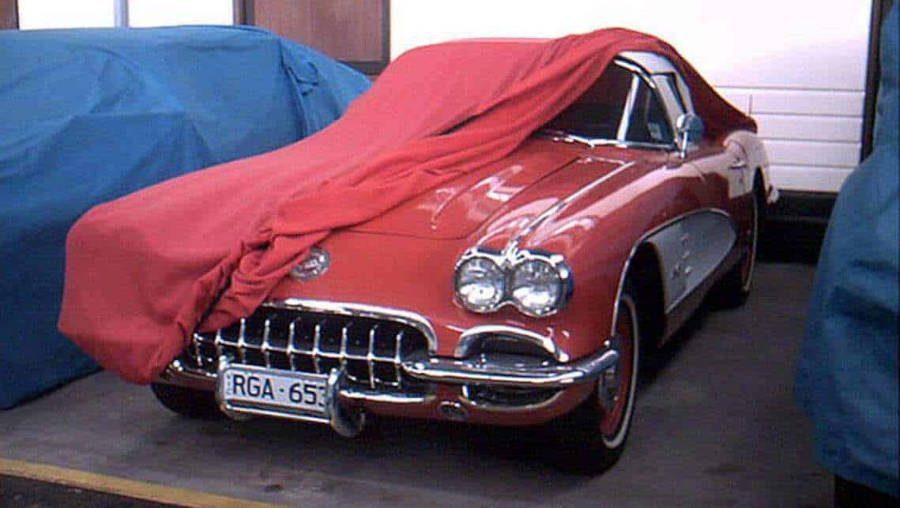
How Often Should I Start a Car when It Is Not Used
In many American cities, many people are inclining more towards car sharing, public transit, bicycling, and hailing. People are driving their vehicles less and opting to park them for continuous long durations. One of the notoriously asked questions is how often should you start your car in storage.

You should start your stored car as often as possible to ensure it is still in good working condition. Despite car sales being a very profitable business, inclement weather conditions and road congestions still manage to disenchant many drivers with driving. Regardless of the duration, there are a few simple things you must do to ensure your vehicle is in good condition and ready to go when you need it. Preserving the longevity of your engine involves practicing good car storage habits. So, how often should you start your car in storage?
How long can you leave a car before starting it?
Generally, battery life for vehicles in storage is difficult to predict because it is dependent on many factors; such as the age of the battery, the frequency in which you drive, as well as the climate in your area.
Modern vehicles can stay for a month while parked without the battery dying. However, if it is an expensive modern car with plenty of computers and power-consuming gadgets, the vehicle’s battery may die as soon as after two weeks.
A car’s battery is responsible for producing electricity through a chain of electrochemical reactions. As electrons flow through a solution of sulfuric acid, from the lead oxide anode to the metallic lead cathode, production of electricity occurs. As such, when a car is not in use, batteries lose their charges.
Connecting a battery to a vehicle drains it faster because the car sucks power, even when parked. This process occurs quicker if the car has an alarm system, memories for seat position, radio, and climate control settings, and onboard computers; among many others. Luckily, installing an alternator maintains the battery’s charge as it produces enough power to keep the lights on, and power the alarm system, as well as other electrical gadgets in the vehicle.
How do I maintain a car in storage?
Owning a vehicle demands that you perform frequent maintenance checks and routines to guarantee high performance-especially for vehicles you do not use often. Here are some helpful car maintenance tips for a car in storage.
Thoroughly clean it
If you have a car that you do not drive for extended periods, it is crucial to clean it inside out, including washing with soap, waxing and polishing its exterior. Spray an unpainted metal surface with undercoat to prevent it from rusting
Fill up your gas tank and fluids
If you plan to keep your vehicle in storage for more than 30 days, it is advisable to get a full tank of gas to prevent moisture from building up. Adding fuel stabilizer in the tank prevents the need for a fuel alternative source, calibrations or fuel system cleanings. Topping off your car fluids, such as brake fluid, power steering fluid, engine coolant, as well as changing the engine oil ensures your vehicle remains in good condition before you start it up again.
By storing a car in this manner, starting it up at intervals of two to three weeks may effectively prevent spoilage of the battery and ensure circulation of fluids. Ensure the car runs long enough to achieve normal operating temperature while gently revving the battery to remove moisture from exhaust components.
Inflate your tires
When a car sits for a longtime, temperature change may cause the tires to lose pressure; thus, becoming deflated. Inflate your tires to the recommended air pressure and repeat the process once you remove the vehicle from storage.
Cover it up
Use a quality cover that fits well on your vehicle to help in keeping moisture out and allowing air flow. The cover aids in further protecting the interior from scratches, dirt, and bumps. Putting steel wool in the exhaust pipe and air cleaner intake stops small animals from creeping into them.
It is advisable to hook up the battery to a battery tender or a trickle charger with float mode or an automatic shut-off feature to protect it. The battery can either be left or removed from the hood of the vehicle while connected to the battery tender.
Taking car out of storage
Once you are ready to use your vehicle once again, you have to undo all the storage preparation steps you had done. Prepare a simple checklist to ensure you do not forget anything. Thoroughly inspect your vehicle for broken windshield wipers or rodent damage such as chewed belts, wires, and hoses as you remove the steel wool from the exhaust pipes and air cleaner intake.
It is also best to check your tire pressure and car fluids and top up where necessary. Wash the vehicle to remove accumulated dirt and reconnect your battery to ensure your terminals are clean.
What Are the Dangers of Storing Car for Many Months?
It is okay to store your car for a few days before driving it but if this persists for more than six months then you are going to experience some serious damage to your car. Here are some car times that get destroyed from storing for too long.
- Battery: Even if you remove your battery terminals and let the car sit for a long while it will loose its juice and not be ready for your next start up. If the battery acid is made to sit for a long time it reduces the overall lifespan of the battery.
- Engine: The engine has many metallic parts that are constantly exposed to moisture. The engine serpentine belt is subject to corrosion and with time you may notice that rodents have made residence in your car engine. This will lead to them eating up some of your car wires. If the oil dries up then any metallic part – including cylinders – that needs oil will start to rust away. If the problem continues for a long time you may find yourself with a dead engine.
- Brakes: The brakes will often jam if you have ridden the car for a long time. Since most of the parts are metallic in nature you may notice that some of the brake parts are corroded. If you live in an area that is very humid then the rate of corrosion is higher.
- Fluid breakdown: The more you let your car sit in the garage the more fluids like oil breakdown hence losing their viscosity. What this means is you will need to refill most of your fluids when you start again. Not to forget that lack of lubrication causes further metallic part corrosion.
- Faulty electrical wires: Rodents will often find the engine as a nice breeding ground and within a short time you will find yourself battling with loose and half eaten wires. If the problem is persistent you will find trouble with your power windows, radio, AC or electric seats.
- AC gas leak: While this is rare, the longer you keep your car unattended the more you are susceptible to AC gas leaks. The next time you switch on your AC it will be empty.
- Dried out engine seals: When you leave out your differential or engine rear main seal unused for a long time you will notice that they have dried out. This causes further problems starting the car as it leads to massive oil leaks. Since the seals are well hidden it will cost you more to locate them and replace them.
- Fuel tank absorbing water: If you are going to be leaving your car for a long time then also ensure that you have refilled your fuel tank. This helps prevent the accumulation of moisture which may contaminate your fuel during your next refill.
- Battery rotor rust: This is minor and usually surface level. When you next use the car, you can remove the tires and examine the rotors. If they have rust simply sand them and it will be well.
- Battery tender: The battery is one of the key components that suffer a great deal when you leave your car unattended for a longtime. To keep your battery operating optimally, you can purchase a battery tender. This is a small device that is attached to the battery and it keeps its levels high while maintaining it in good condition. Once you decide to drive the car, you simply disconnect the terminals and drive off.
- Car paint: You paint suffers a great deal when you leave your car exposed to UV light for a long time. Once the paint starts to peel off you will find yourself with a car with dull colors. If the car is exposed for a longtime then your only option is a full repaint – which can be very expensive.
Conclusion
When storing your car, car manufacturer’s recommendations and product guidelines may not be of much help. Leaving your car to sit on the street or in a garage for a continuous long duration may lead to a dead battery or worse yet- ruined tires, damaged engine and a complete transformation of your vehicle to a rodent’s shelter.
Performing the tips mentioned above help in the maintenance and preservation of your engine’s life. Similarly, driving it every two to three weeks ensures you do not end up with a dead battery, flat tires or any other issues when you choose to drive your car once again. In colder temperatures, it is best to start it up at least every week to play it safe.
